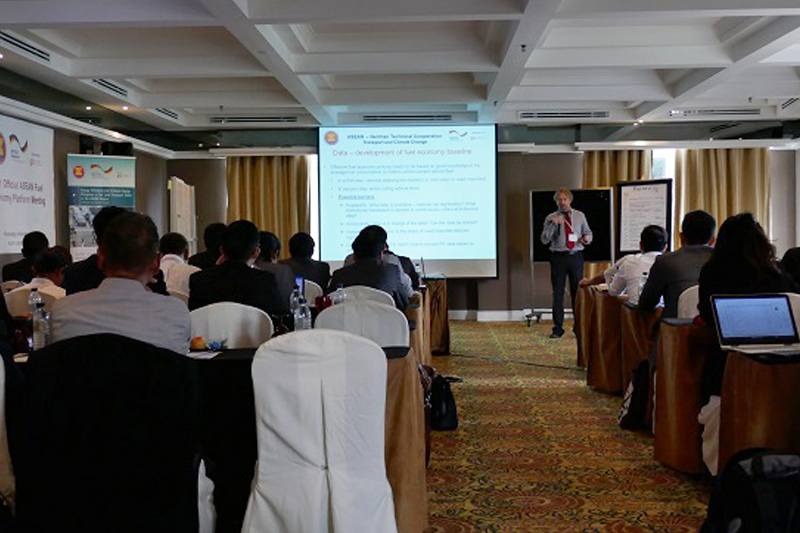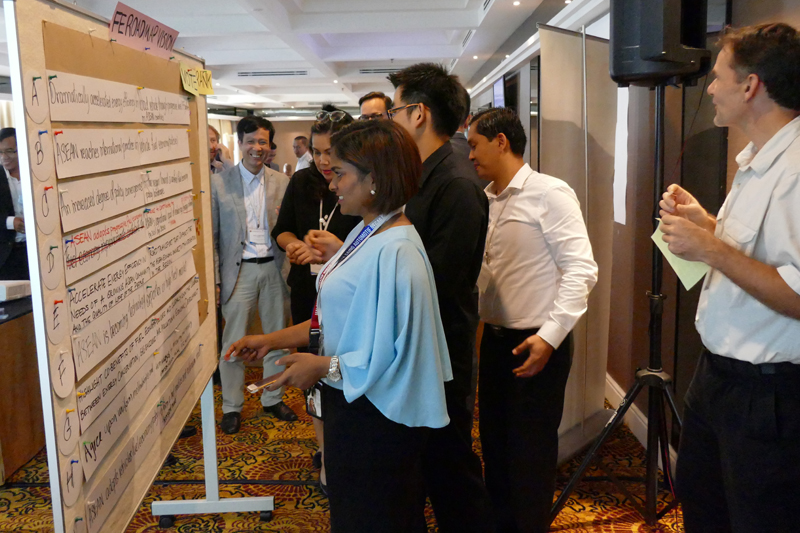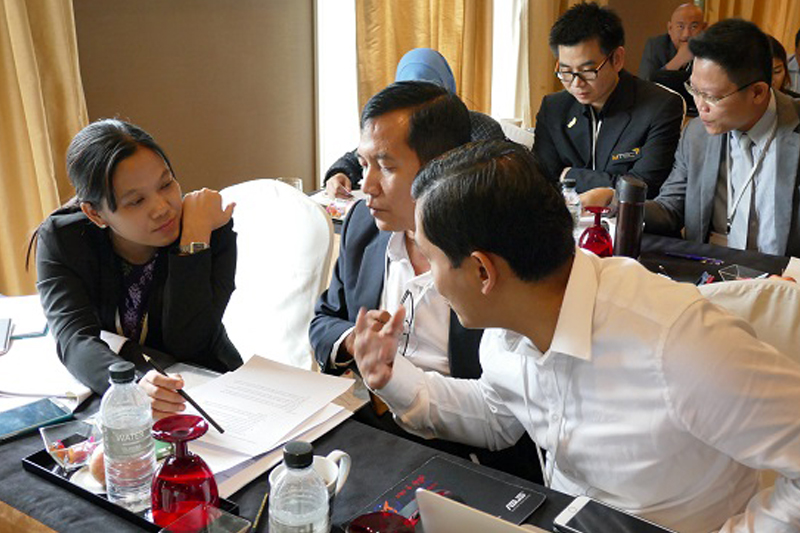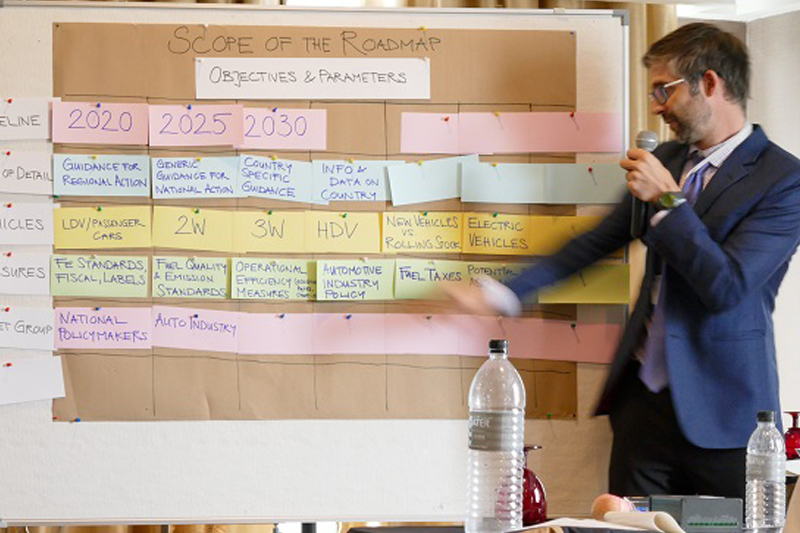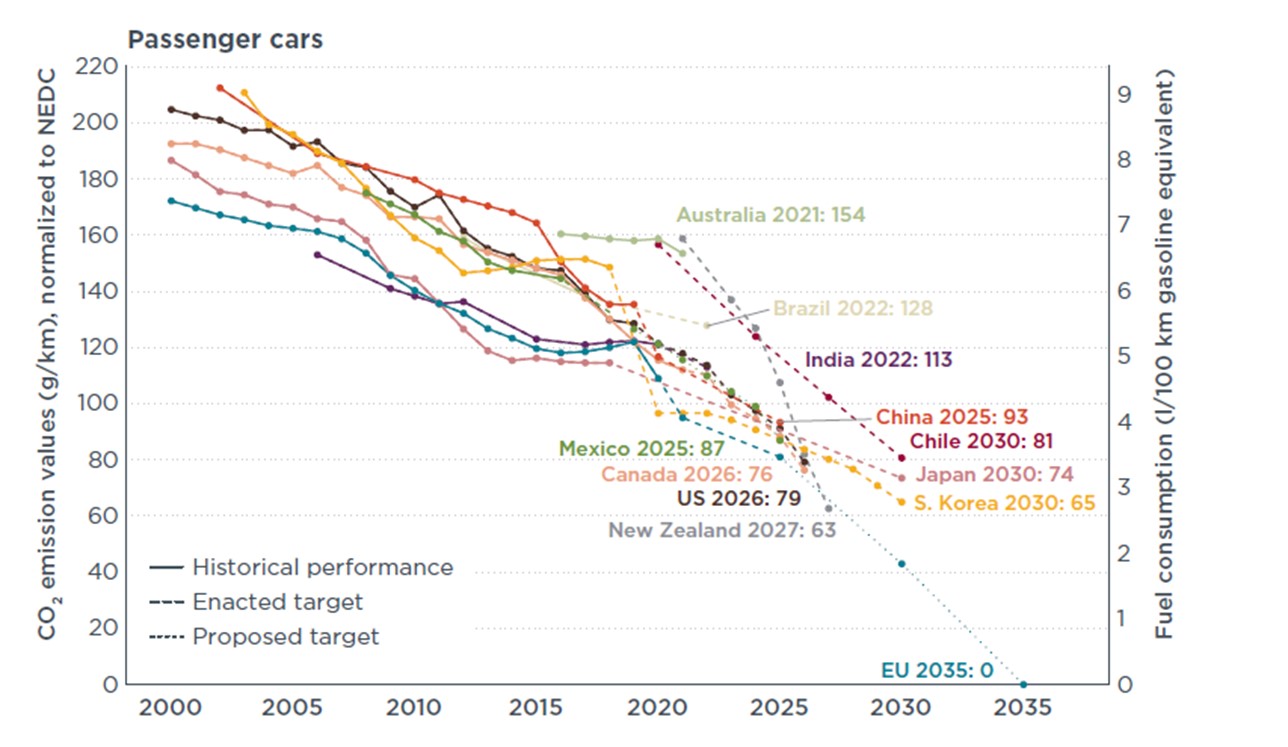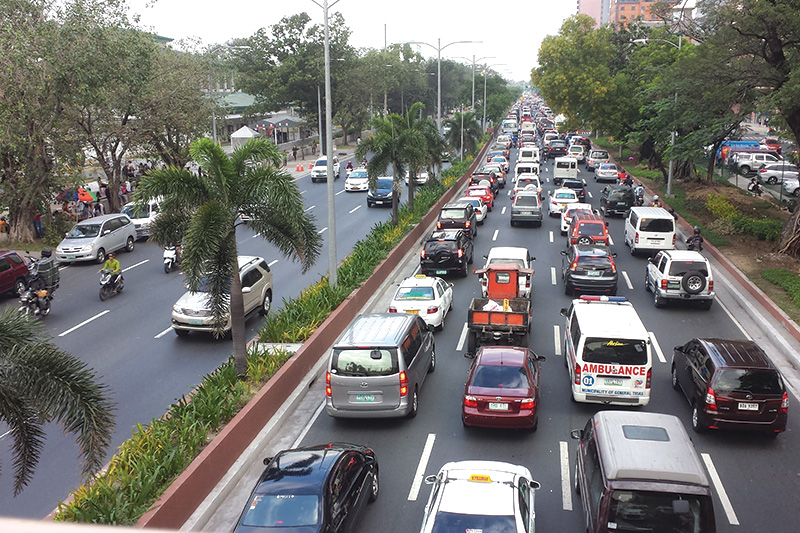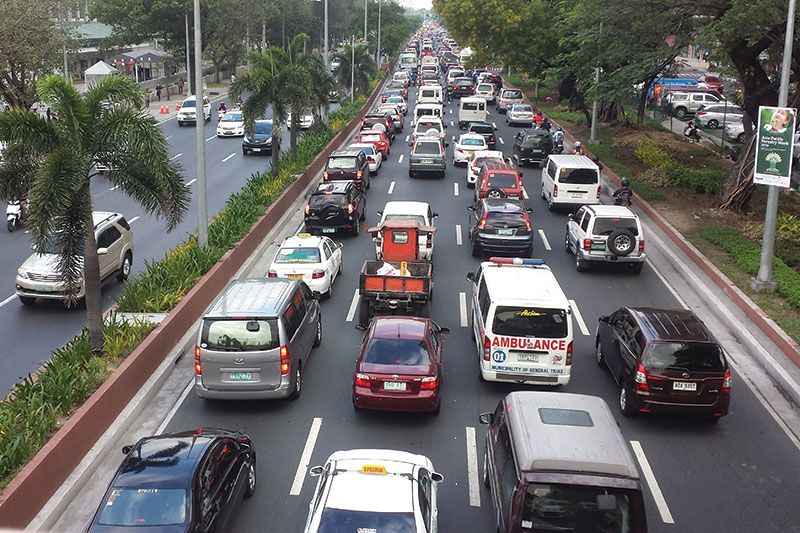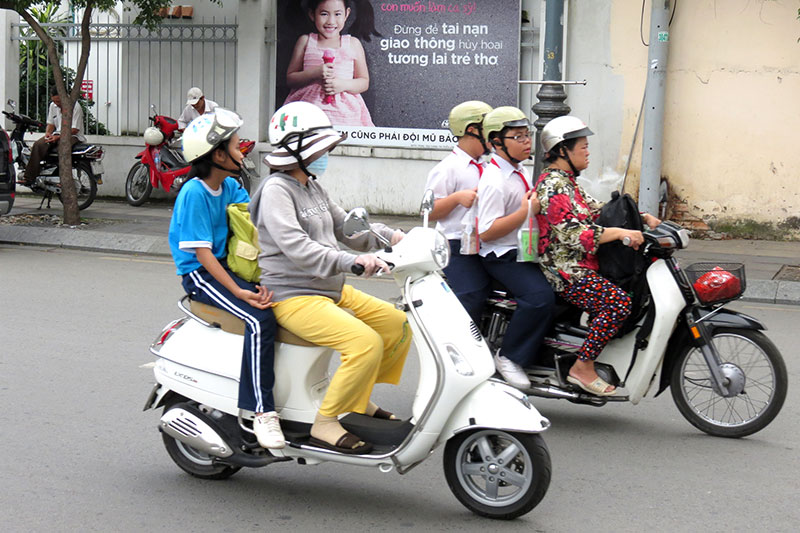Milestone as first meeting of ASEAN Fuel Economy Platform Forum held in Kuala Lumpur
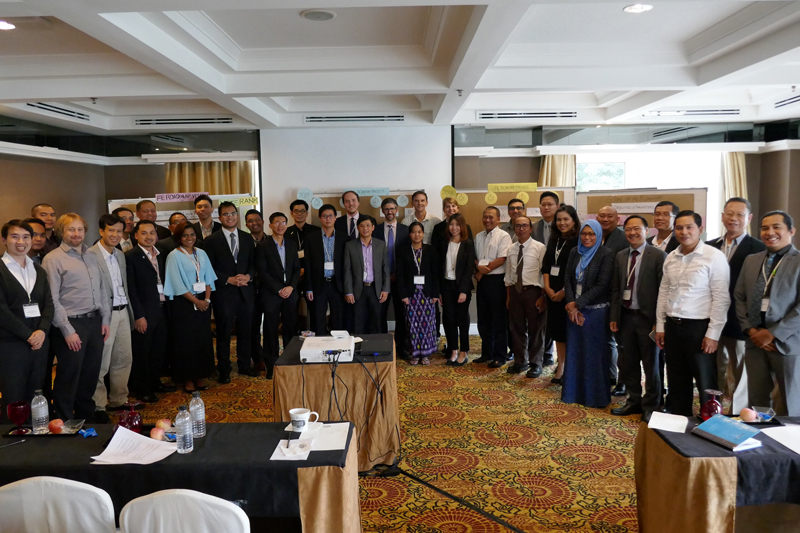
ASEAN action on fuel economy reached a new milestone as the first forum of the ASEAN Fuel Economy Platform was held on 9 November in Kuala Lumpur. This platform is a culmination of various efforts of Clean Air Asia, GIZ, UNEP, and GFEI in mainstreaming fuel economy in South-East Asia. 42 Experts from 11 countries representing government agencies, research institutes, and NGOs came together to discuss where ASEAN countries’ fuel economy policy efforts stand today, to learn about international practices, and to kick off work on an ASEAN Fuel Economy Roadmap.
ASEAN’s most recent regional transport strategy (“Kuala Lumpur Transport Strategic Plan, KLTSP” 2016-2025) has three milestones for fuel economy action. First, the establishment of a platform to discuss matters related to fuel economy for the transport sector. Second, to formulate a regional roadmap that includes policy guidelines for member states. And third, support to the development and adoption of nationally appropriate policies for cleaner fuels and vehicles.
The ASEAN-German Technical cooperation project “Energy Efficiency and Climate Change Mitigation in the ASEAN Region” implemented by GIZ on behalf of the Federal German Ministry of Economic Cooperation and Development (BMZ) provides support for realising all three milestones.
Discussion highlights from the platform forum include:
- Policies to improve the fuel economy (FE) of light-duty vehicles (LDVs) have proven around the world to have a great potential to reduce fuel use, greenhouse gases (GHG), and fuel expenditures
- FE policies need country specific tailoring, but ideally build on common metrics and methodologies across the region. Baseline data is an essential ingredient for any policy.
- Momentum to advance FE policies in the region has continued throughout 2016, however, there is diversity in the status and progress of these policies among ASEAN member states
- A regional FE roadmap is considered vital for accelerating progress in the development of policies and for facilitating a coherent approach among countries
The regional fuel economy platform is set to meet twice a year, with a next forum foreseen for March 2017 in Bangkok. At each event, experts from the region will take stock of the progress and shape developing the fuel economy.
The ASEAN region has become one of the world’s largest car and motorcycle markets as vehicle ownership grows with economic development and rising incomes. Yet the transport sector accounts for 27% of the total energy demand in the ASEAN region, of which is 80% consumed by land transport. Following global policy trends and based on national energy and environmental concerns, AMS have therefore started to introduce domestic policies to promote improvements in the energy efficiency of vehicles. With a view to deeper regional integration and a more sustainable future, further initiative is needed for moving towards international best practice as a region.
For more information and to see the presentations please click here.
